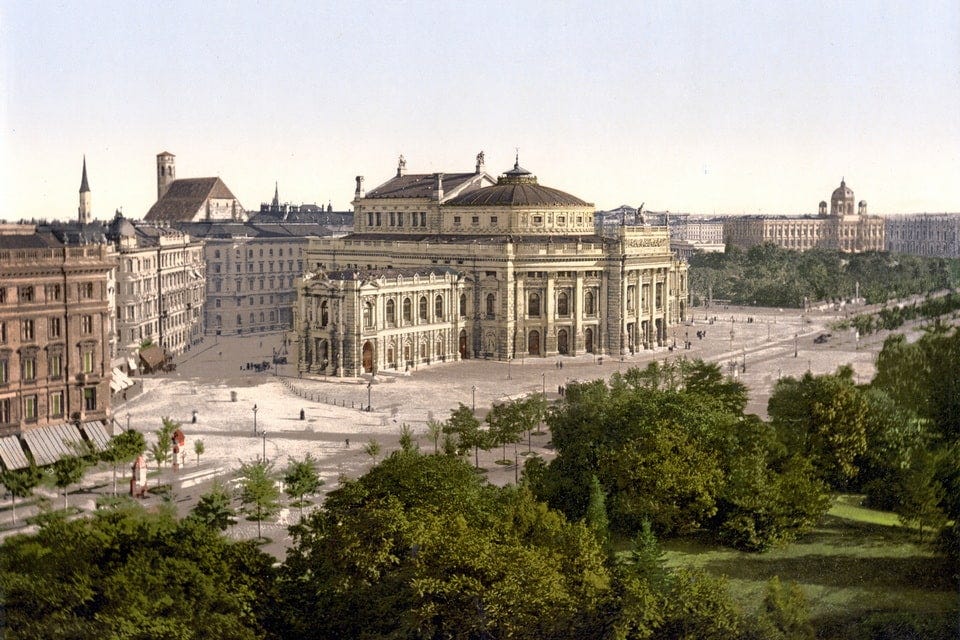Viennese Whirls of History
When your thoughts turn to Hitler on a sunny afternoon in Austria…

I felt mildly guilty this weekend as I sat outside the Café Landtmann, wondering how it could possibly be right that anyone’s working life contained sunny afternoons in Vienna. It just seemed too good to be true. It was unseasonably warm. So I’d shrugged off my blazer and took a moment to close my eyes and appreciate the sunshine on my face after what had felt like a long, grey winter.
I listened to the people around me chatting in the sing-song accent of Vienna, which — unlike some of its more rural cousins — is intelligible to me but full of strange words and phrases. One of the most endearing things I learned this time was that many Austrians refer to the toilet as a ‘Häusl’, a ‘little house’. There were a couple of Slavic languages among the general chatter as well. Polish, I thought. And maybe Serbian? The sounds of hooves clattered by as a carriage chauffeured a couple of happy tourists through the Austrian capital.
Café Landtmann has been around since 1873. It occurred to me that someone sitting in my place when it first opened its doors, enjoying the warm sunshine with their eyes closed, may have listened to much the same soundscape. But they would have lived in a very different world.
Then, Germany was two years old as a nation-state. Vienna was the proud capital of the Austro-Hungarian Empire and the largest German-speaking city on the continent. It was a bustling, multiethnic metropolis with an opulent court culture that was beginning to feel outdated in the modern world that was beginning to take shape.
My imaginary predecessor would have been born into a Europe that couldn’t even begin to contemplate the terror of modern warfare that was to hit it in the trenches and the battlefields of the First World War two generations later. Nor could they imagine the sheer misery that would befall civilians during and after that war or the complete breakup of the European order or the horrors that were to follow.
In 1873, an Austrian boy named Adolf Hitler had yet to be born. His future mother Klara was 13 years old, and it would be another three years before she began working as a maid for her relative and future husband Alois Hitler.
‘Ihr Kaffee, Madam.’ I opened my eyes and blinked a few times in the bright sunshine. A suited young waiter stood by my table, my Wiener Melange in hand – a small coffee that’s half espresso, half textured milk. I smiled at him awkwardly, feeling a little ashamed that I’d been sitting in his cafe thinking about Hitler.
Keep reading with a 7-day free trial
Subscribe to ZEITGEIST to keep reading this post and get 7 days of free access to the full post archives.

